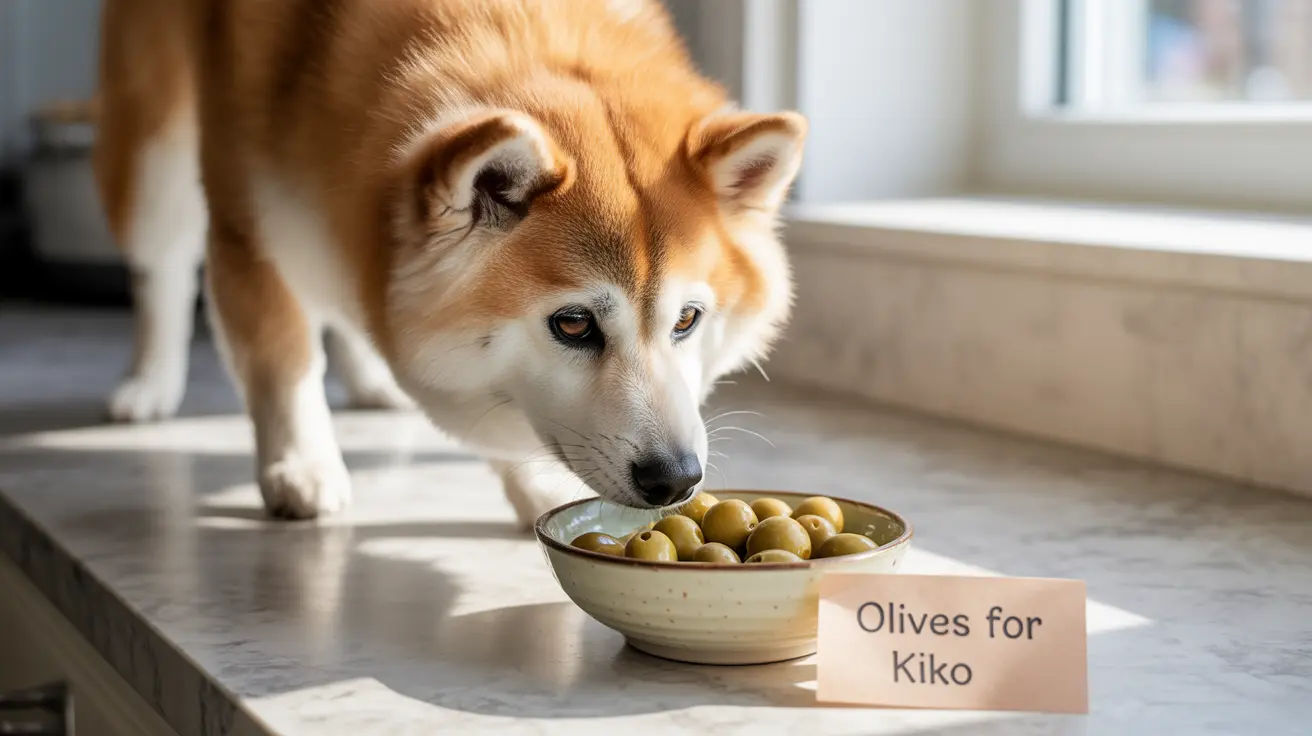Many dog owners wonder about sharing human foods with their furry friends, and olives are no exception. The good news is that black olives can be a safe treat for dogs when served properly. However, there are important guidelines to follow and precautions to take when introducing these Mediterranean fruits to your canine companion.
Understanding the dos and don'ts of feeding olives to dogs can help ensure a safe and healthy snacking experience. Let's explore everything you need to know about dogs and black olives, from their nutritional benefits to potential risks and proper serving methods.
The Safety of Black Olives for Dogs
Black olives are generally safe for dogs to eat in moderation. They are non-toxic and can even provide some nutritional benefits. However, it's crucial to serve them plain, without any seasonings, stuffings, or additives that could be harmful to your pet.
When choosing olives for your dog, opt for those packed in water rather than brine or oil. This helps avoid excessive sodium intake, which can be dangerous for dogs. Remember that olives should be considered an occasional treat rather than a regular part of your dog's diet.
Nutritional Benefits of Black Olives
Black olives contain several beneficial nutrients that can contribute to your dog's health when fed in appropriate amounts:
- Healthy fats and omega-3 fatty acids
- Vitamin E for immune system support
- Antioxidants that fight inflammation
- Minerals like iron and calcium
- Dietary fiber for digestive health
These nutrients can support your dog's overall well-being, though it's important to note that a complete and balanced dog food already provides all the necessary nutrients your pet needs.
Potential Risks and Precautions
While black olives are safe for dogs, there are several important precautions to keep in mind:
Choking Hazards
Always remove olive pits before feeding olives to your dog. Pits can cause choking and potentially lead to serious digestive blockages if swallowed. They can also damage your dog's teeth if chewed on.
Sodium Content
Even plain black olives contain some sodium. Too much sodium can lead to dehydration and other health issues in dogs. This is especially important for dogs with heart conditions or those prone to water retention.
Seasoning and Additives
Avoid giving your dog olives that are:
- Stuffed with ingredients like garlic or cheese
- Marinated in herbs or spices
- Soaked in brine or alcohol
- Seasoned with salt or other additives
How to Safely Feed Black Olives to Your Dog
Follow these guidelines when offering black olives to your dog:
- Choose plain, pitted black olives
- Rinse thoroughly to remove excess salt
- Cut into small pieces appropriate for your dog's size
- Start with one small piece to test tolerance
- Monitor your dog for any adverse reactions
As with any new food, introduce olives gradually and watch for any signs of digestive upset or allergic reactions.
Frequently Asked Questions
Can dogs have black olives, and are they safe for consumption?
Yes, dogs can safely eat plain black olives in moderation. Ensure they are pitted and free from seasonings or additives. Always introduce new foods gradually and monitor your pet's reaction.
How do I prepare olives for my dog to eat safely?
Remove the pit, rinse thoroughly to reduce sodium content, and cut into appropriately sized pieces. Choose plain, unseasoned olives packed in water rather than brine or oil.
What are the potential health benefits of feeding olives to dogs?
Olives provide healthy fats, antioxidants, vitamin E, and minerals that can support immune health and reduce inflammation. However, these benefits should be considered supplementary to a complete dog food diet.
Are there any risks associated with giving olives to small dogs?
Small dogs are more sensitive to sodium content and more susceptible to choking hazards. Portion sizes should be even smaller for tiny breeds, and extra care should be taken to ensure pieces are appropriately sized.
How can I prevent my dog from choking on olive pits?
Always remove pits before feeding olives to your dog. Only serve pitted olives that have been cut into small, manageable pieces appropriate for your dog's size.






